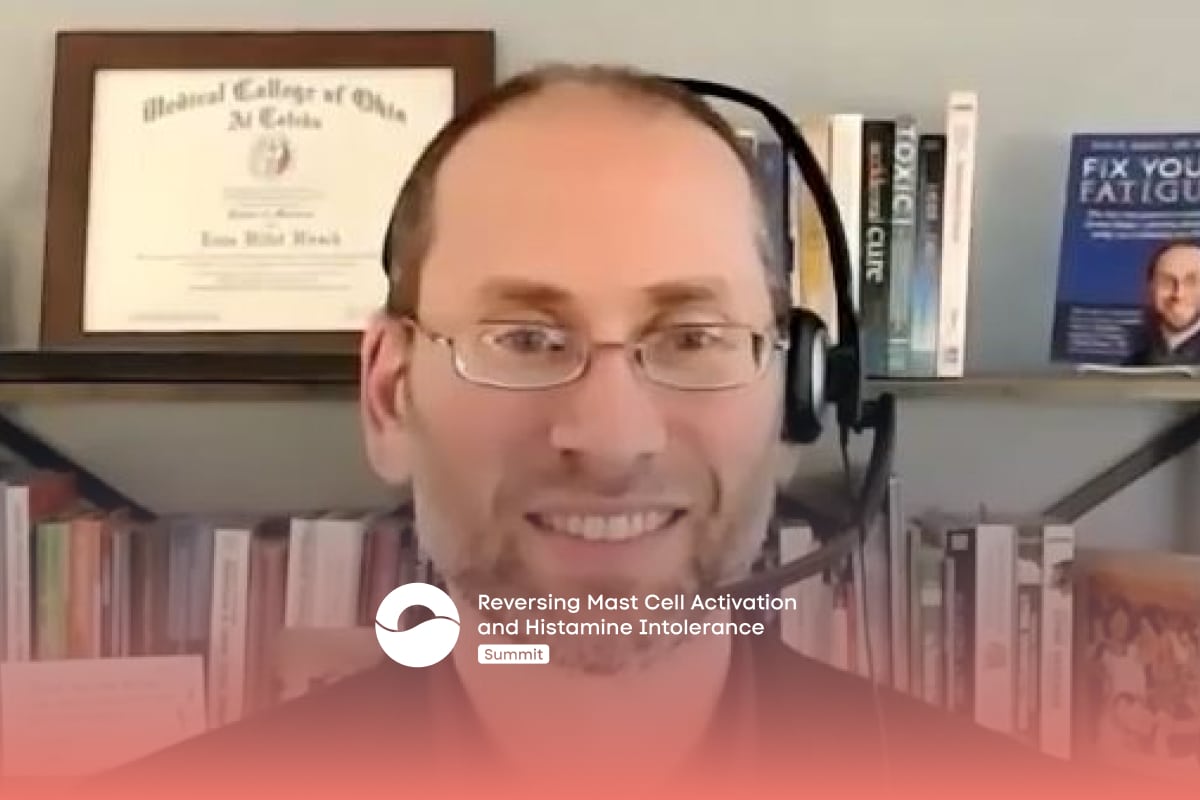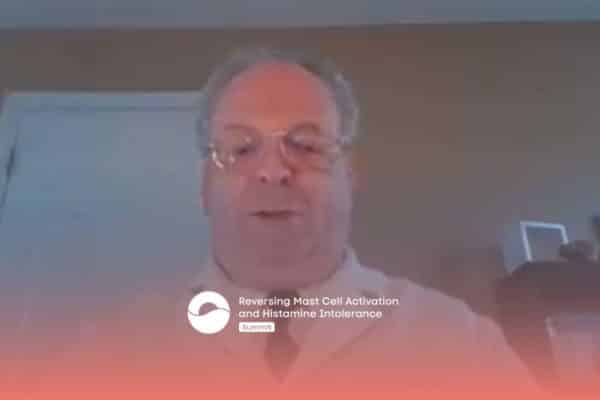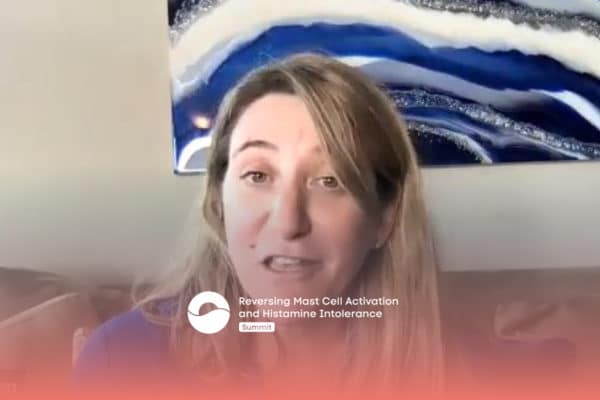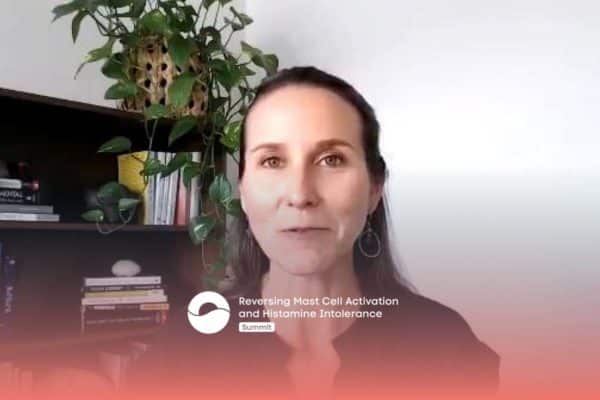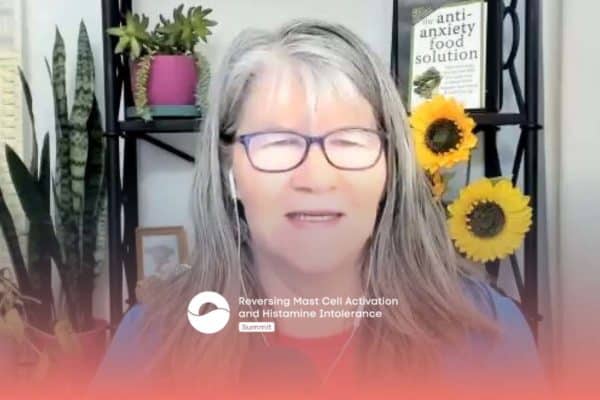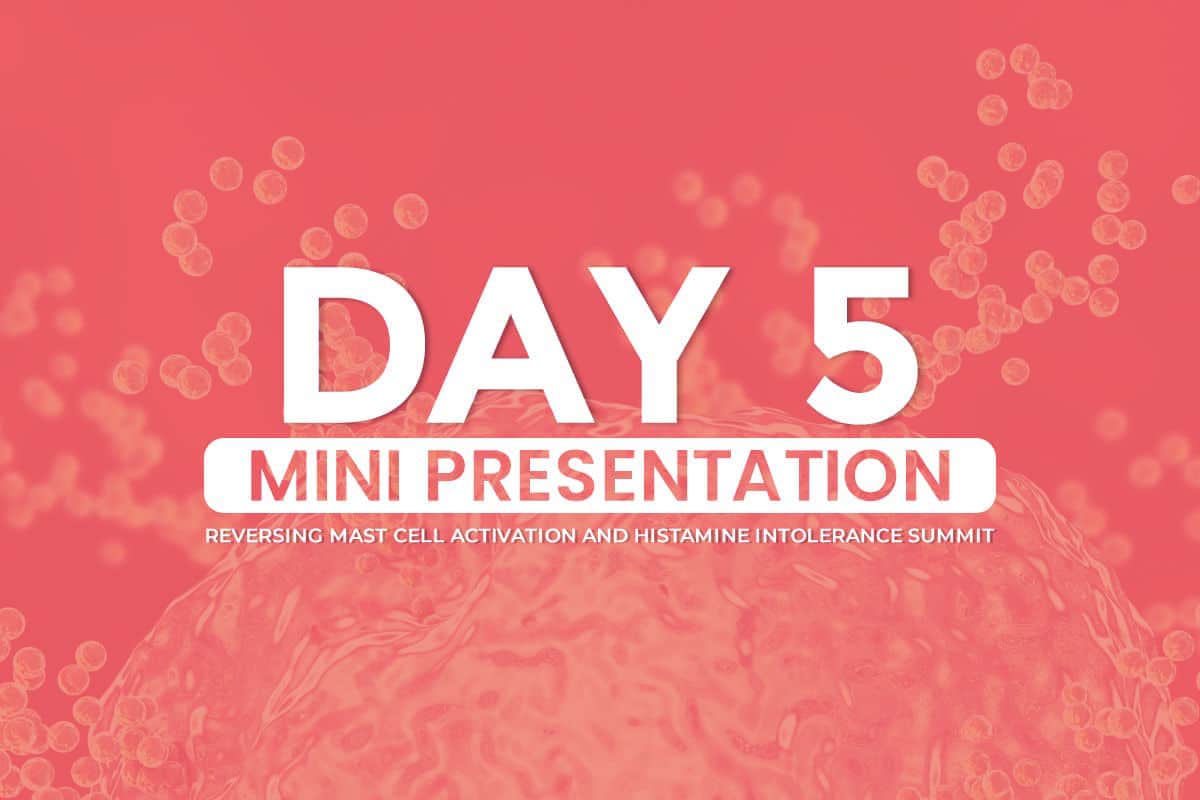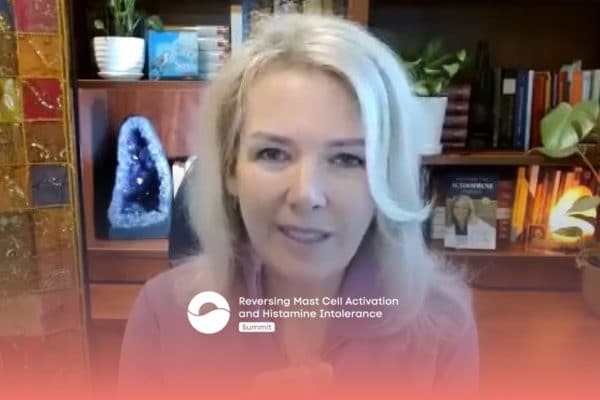Join the discussion below
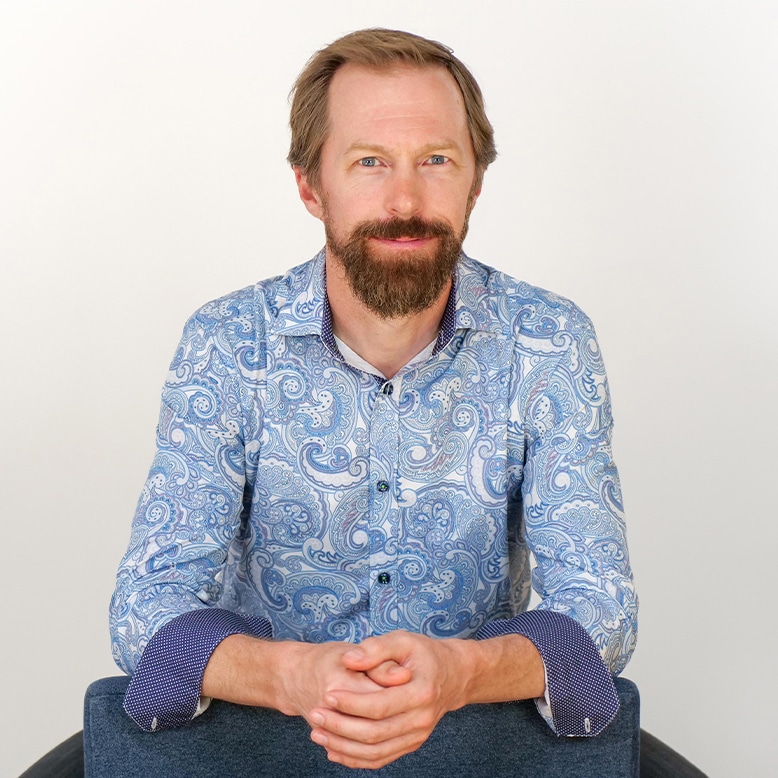
Dr. Tom treats some of the sickest, most sensitive patients suffering from chronic Lyme disease, tick-borne co-infections, mold illness as well as children with infection-induced autoimmune encephalitis (PANS/PANDAS). He focuses on optimizing the body’s self-healing systems in order to achieve optimal health with simple, natural interventions; utilizing more conventional approaches... Read More
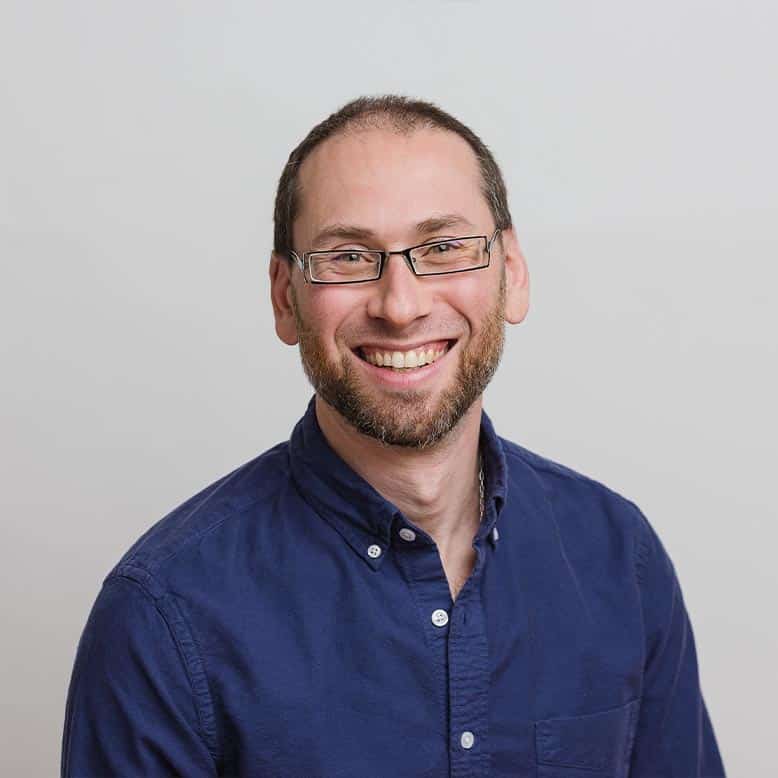
Evan H. Hirsch, MD, (also known as the EnergyMD) is a world-renowned Energy expert, best-selling author and professional speaker. He is the creator of the EnergyMD Method, the science-backed and clinically proven 4 step process to increase energy naturally. Through his best-selling book, podcast, and international online telehealth programs that... Read More
- Learn the 4 step process to finding and fixing the causes of low energy and fatigue
- What come causes of low energy also trigger MCAS?
- Why you often feel worse during treatment and how to manage and even avoid this
Related Topics
Acceptance And Gratitude, Adverse Life Events, Allergies, Chemicals, Chronic Fatigue, Chronic Illness, Deficiencies, Electromagnetic Fields, Emotional Health, Energy, Energy Drainers, Energy Management, Environmental Medicine, Heavy Metals, Infections, Mast Cell Activation, Mentorship, Mind-body Connection, Molds, Negative Emotional Patterns, Spiritual Path, Total Body Burden, Toxicities, TreatmentTom Moorcroft, DO
Hey, everybody. Dr. Tom Moorcroft here again with you. And thanks for joining us for this episode of the Reversing Mast Cell Activation and Histamine Intolerance Summit. And today I’m pumped. I get to talk to a really great friend of mine, Dr. Evan Hirsch. He’s known as the energy MD. And today’s conversation is gonna be so good because there are so many of us who are experiencing muscle activation syndrome, issues with histamine. A lot of things that we deal with are low energy and all the other things that go along with it. So Dr. Evan is really gonna be helping us understand that today some more. And a little is in his background, he’s world renowned expert in energy medicine and optimizing your energy. He’s also a bestselling author and professional speaker.
He created the energy MD method, and it’s a science backed and clinically proven four step process to increase your energy naturally. Through his best selling book, his podcast and international online telehealth programs. You can basically access this information from Dr. Hirsch everywhere. He’s been able with these programs to help thousands of people around the world increase their energy and their happiness. He’s also been featured on a whole bunch of different TV shows, podcast, summits like this one. And when he is not in the office, you can find him singing musicals, dancing hip hop, which I’ve witnessed, which you have to totally check out. And playing basketball with his family. So Evan, thanks for joining us today.
Evan Hirsch, MD
Thanks so much for having me on, Tom.
Tom Moorcroft, DO
Yeah, I’m so excited. I mean, I just remember like one of the first times where you hung out, we were dancing. And it’s one of the things I think really I hope comes through in what we’re talking about today, for me, a lot of our energy has to do with just going out and doing cool stuff, things you love in your life. And so really, I just wanted to ask you what’s the deal with energy management, right? I mean, ’cause it’s just I feel like some days in the Energizer Bunny, some days I’m kinda like, “I don’t have a lot of energy.” And I know that if I go hang out with you at a party somewhere, at a conference, I’m gonna get energized. But some other days I don’t have that. So how do you unpack all that stuff?
Evan Hirsch, MD
So it’s really like any other condition where you’re looking at mind, body, spirit and emotions. What are each of those things doing during that moment when you’re feeling great, or you’re not feeling great. I know you talk a lot about mindset, and that’s a huge part of this. Are you living in gratitude? Are you in a place where you’re actually envisioning and you’re creative, or are you in a place where you’re doing more of the mundane and you really can’t appreciate it. And then what’s the total body burden on your body. In terms of toxicities, and heavy metals, and chemicals, and molds and infections, et cetera, right? And then where’s your emotional health at, are you being triggered by everything that you’re coming and everybody that you’re coming into contact with?
Or are you able to sit with some of this discomfort that happens from time to time or a lot of times, depending on who you are and what your experiences have been in life. But it’s looking at all those things. Mind, body, spirit, emotion, where when you’re working on the health of all of those, and you’re constantly looking for more improvement in each one of those that you’re really going to achieve your best energy and your best self.
Tom Moorcroft, DO
Nice, I love it, man. It’s just like talking my language. I’m pumped about energy. I remember the days where I had chronic fatigue and turned out to be Lyme and a few other things, and I know so many of us have experienced that. But can you tell us a little bit about your personal journey? And what really got you into fixing fatigue and creating this energy MD method?
Evan Hirsch, MD
Yeah, so my first experience with it really was when my wife became fatigue. We fell in love in 2004, I had just started my family medicine residency, and three months later she couldn’t get outta bed. She was running a business, she had three employees, she was still managing things. And about three years later after doing a number of different things, she was about 80% better. But it took three years. But then we got married. We had a kid, I started my practice, graduated residency, all that sort of stuff and started my own practice. And then a couple years later I got chronic fatigue and lasted for five years. And just about destroyed everything. Destroyed my life, destroyed my relationships. My wife, she’s getting over fatigue, we’ve got this newborn and I can’t even help out with the dishes.
I’m like taking naps at work, looking up at the desk every single day. Door closed trying to hide for my staff, being like, “Hey, I’m just gonna be busy for half an hour or whatever.” Needed to lie down on my back for my pot symptoms. And it was after doing that for about a thousand days where I am looking up at the bottom of the desk and be like, “Yo, I know how to do this. I’m already practicing functional medicine. What is my problem?” And I wasn’t really applying it to myself. And so I started applying things to myself and then I learned more about environmental medicine, ’cause functional medicine is great, but sometimes it’s not covering everything. The heavy metals, the chemicals, the molds, the infections, the Lyme, Epstein-Barr virus, not all that stuff can you necessarily find in functional medicine? So the environmental medicine was really huge for me. Applied it to myself, started helping myself, wrote the book, helped thousands of people at this point. Feel very grateful for the journey. My mess became my message.
Tom Moorcroft, DO
Yeah, I know exactly what it feels like, man. It’s just no matter what, it’s like whether I slept four hours or 12 hours, I still felt like crap. Had no energy and yeah, you have to find your thing. So you said something really interesting that I think is really important. It sounds like you knew the tools. You had the tools there. Maybe you needed to add a few, but you weren’t applying them to yourself. I mean, have you found through your own journey and working with thousands of people now to recover their energy. I mean, have you found something that commonly holds people back from actually applying this in their own life? Like I know the answer or I know what I should be doing next, but I’m not doing it?
Evan Hirsch, MD
Yeah, well some of it has to do with mentorship. And that there’s just not good follow up. People are like, “Oh, I’m gonna get a protocol from so and so and that’s gonna take care of all of my issues.” When people contact us and they’re like, “Oh, can I just have one appointment?” One appointment is really not gonna help you. So much of this is the nuances. I tell people figuring out your causes can take a couple of hours. And then replacing your deficiencies can take about a month. But then dealing with removing the heavy metals, the chemicals, the molds and the infections takes like six to 24 to 36 months, right? Depending on the number of causes they have and the severity of each one of those causes. And where they need help is the nuances and all the bumps in the road, right? And that’s why they need a mentor. They need a coach. They need somebody who’s going to hold their hand every step of the way. And when they are confused and when they are frustrated, they have to have that coach who’s also supporting them from the mindset being like, “Yo, we want you to…” I don’t say yo on interviews often, it’s just ’cause I’m hanging out with you.
Tom Moorcroft, DO
I know, right? I was gonna say, it sounds like me talking now. Love it.
Evan Hirsch, MD
It’s like, yo, we need to have acceptance for where we are when we’re frustrated. And we have to have a vision for where we wanna go. But we can’t just have that vision without having acceptance and gratitude for where we are. There is a message that we’re supposed to be receiving. Illness is trying to teach us something. It’s teaching us to slow down. It’s teaching us mindfulness. It’s teaching us awareness, teaching us community. If we have to come into community, if we have to ask for help. There’s so many different messages that we have to learn as part of this becomes essentially a spiritual path in addition to all those other components.
Tom Moorcroft, DO
So well said, I could not agree more. I talk so much about like a lot of us are saying, “Hey, I’m here I wanna be there.” But there’s this huge gap. And I’m like, “But look where you came from and look how much you’ve learned, or what is your illness trying to do?” I mean, I’m just thinking about you. What if you had never experienced chronic fatigue? We wouldn’t have that amazing book on the shelf behind you. We wouldn’t have all these programs. You know what I mean? It’s important, it’s so interesting apparently little or maybe large events will shift your impact on the world. And that’s really, for me, I want everyone to have this opportunity to understand that they deserve to be able to reach for all their goals and then… But take care of yourself first so that you can shine your light for everybody else and guide them. It’s so good bro. Yeah, yo and bro, here we go. Can’t wait to see the transcript. Somebody’s gonna be thinking we’re like 1990s in New Jersey. Which I was all about.
Evan Hirsch, MD
New Jersey.
Tom Moorcroft, DO
I’ve heard you talk about energy drainers. I mean, what are the main things you’re seeing that are drainers that people need to kind of remove from their lives in order to get some of this energy back?
Evan Hirsch, MD
Yeah, so we can call them drainers. We can call them toxicities. These are things that are in the body that aren’t supposed to be in the body. So we’re talking about things like heavy metals, or chemicals, or molds, or infections, or allergies, or negative emotional patterns, right? If you’ve ever had any sort of ACEs, adverse childhood events, or I call them ALEs, adverse life events, because anywhere along the line, if you had something happen to you, that changed the way that you looked at the world and the world became unsafe. Consequently, that is going to increase stress on your body, right? And that’s gonna change the way that you look at the world. And then there’s electromagnetic fields, right? Anything that you may have been or probably exposed to if you’re suffering with some of these issues, whether it’s mass cell, whether it’s fatigue that has accumulated in your body throughout your life, that ends up causing a number of these symptoms. And the other things that are drainers are deficiencies.
Deficiencies and hormones and nutrients and vitamins and minerals and neurotransmitters and lifestyle habits. Not enough good food, not enough good water, not enough movement, not enough of a good mindset. So all of those things are energy drainers. And it just so happens that these deficiencies, which a lot of people have done by the time they’ve come to see me, which integrative and functional docs are good at, 80% of those deficiencies are actually caused by the toxicities, by the heavy metals, by the chemicals, by the molds, by the infections, right? And so yes, you wanna boost those things up. You’re gonna feel better when you boost your deficiencies. But you have to remember that you have to get rid of all those toxicities in order to feel better.
Tom Moorcroft, DO
Yeah, it’s just so key. It’s just like one of the things people often ask is like, “Well, what do you do differently? I’ve been to six doctors, I’ve been to 10 doctors.” And so what you’re finding is a lot of people are able to identify the deficiency, but maybe the cause of the deficiency is the thing that’s being missed.
Evan Hirsch, MD
Exactly, yeah. So I have a sheet that I put up when I have calls with people. And I’ve been like, “Have you addressed all of these?” There’s like 33, 34 different causes that we look at. It’s like having 34 nails in the bottom of your foot, right? And if you’ve worked with so and so, and they’ve taken care of 10 of those, yeah, you’re gonna feel better, but you still have 24 causes in the bottom of your foot that have to be remedied. It still hurts when you walk, right? And so even if you have like one or two of them, I mean, the big ones really are mold plus a couple of infections. That’s the big stuff that unfortunately not enough people are still talking about. I know you are, a lot of people in the mass cell activation space are, but still not enough. And I don’t blame them. I didn’t want to go into that stuff. I was like, “Oh man, that stuff’s so complicated.” But then you’re sitting with somebody in front of you that you can’t get well. And you’re like, “Oh, I guess I gotta learn about this stuff.”
Tom Moorcroft, DO
I just had like a flashback to one of my mentors. I studied Lyme disease a bunch. And then I was like, “Well, I’m gonna start doing more of this.” He’s like, “Are you sure you wanna do that?” And right. It’s one of those things where you’re dedicating a lot of your time and your energy to helping people who are really suffering and it’s laudable. And it’s something that we all need to do. But I see why like you’re saying, a lot of people don’t dive into those necessarily all the time because you could probably get rid of 24 or the 34, but you got those 10 or even the four. And they’re the big ones, but they’re the hardest ones where you have to be honest. That’s what I love about our conversations, you’re like, “It might take 10 or 24 or 36 months to remove the mold.” That’s like we need more honesty these days.
Evan Hirsch, MD
Yep.
Tom Moorcroft, DO
So what do you see in your folks ’cause with mast cell activation I mean, and use the other M word, mold with so much overlap and triggering,. But how are you seeing this manifesting sort of in your patient population?
Evan Hirsch, MD
So it’s really about the sensitivities. And there’s specific criteria in the conventional establishment around like, yes, it’s like allergy and there’s very specific things that mass cells do. Mass cells are only part of the immune system. But when I’m looking at mass cell activation syndrome, it really is the immune system reacting to something that’s not supposed to be in the body. And that’s why it’s reacting to mold, right? But it’s producing these allergy symptoms. So whether it’s on the skin, whether it’s GI symptoms, whether it’s headaches or whatever, which can be things that you can get from a food allergy or reacting to heavy metals or chemicals or molds. It’s essentially inflammation in different parts of the body that are triggered by something that’s not supposed to be in the body. So when we look at the most basic form of the immune system, it’s supposed to be our sentinels, right? It’s supposed to be our guards where if something comes in the body that’s not supposed to be there. It’s supposed to gobble it up, stick it in the lymph, get it outta the body, right?
Tom Moorcroft, DO
Right.
Evan Hirsch, MD
And unfortunately what ends up happening is that if you’ve got heavy metals, chemicals, molds, infections, et cetera, those things are able to hide from the immune system. So the immune system is trying to get those things and it just can’t get them. It’s like going through cells in order to do it, going around them. You’re getting molecular mimicry where now the immune system is attacking different parts of the body that look like those different things. And then consequently, you end up with inflammation, which is by definition, pain and dysfunction. But if you work your way back, if you’ve got a symptom, it’s from inflammation and essentially it’s reacting. The immune system is reacting to something which is causing the inflammation. And just big picture for folks, inflammation is a normal thing, it’s supposed to happen. It’s something we want to have happen. We just don’t want it to happen chronically, right? You break your leg, you get a scratch. You want the immune system to come there, fix things and then it’s done. But unfortunately with all these toxins that are building up in our bodies, it becomes chronic. So the light switch of inflammation remains on.
Tom Moorcroft, DO
So yeah, I think of it as hyper reactivity, because it’s like you’re saying, they’re sentinels, but the sentinels are only supposed to work certain shifts and they’re kind of working all the time. So I think I’m summarizing what I’m hearing you saying is like, it’s almost like you get so many things layered on top of each other that mass cell activation syndrome or histamine tons could be one of those things that you’re seeing as a result of all this toxicity in the background.
Evan Hirsch, MD
Absolutely yes. So the way that I explain it to people is if you look at a rain barrel, your body is this rain barrel. And then over time, you’re just accumulating things. We know that 287 different chemicals are found in cord blood, right? In one study, right? So we come out of the womb with a whole bunch of toxins, right? And then I ate gluten and dairy growing up and I pooped once a week, right? So I couldn’t get toxins out of my body. And then I had mercury fillings and then I kissed somebody who had Epstein-Barr virus. And then I lived in a place that had mold, right? And so all this stuff. And then I went to medical school and then gross anatomy lab, I had formaldehyde poisoning, all this sort of stuff.
Tom Moorcroft, DO
For real, right?
Evan Hirsch, MD
Yeah. So it all builds up until eventually it’s overwhelming the liver, it’s overwhelming the immune system. And then you’re exactly right. It’s hyper reactive. So anything that you drop on that load and on the immune system in the liver, they’re like, “Uh-uh, we don’t want that. We want it out. Let’s get it out. Any path we get, okay. Let’s diarrhea. Let’s get it out. Oh, let’s let’s have you vomit. Let’s make you nauseous. Oh, let’s get it out of the skin.” The immune system on the body is like, “No, we’re gonna get it out any means possible.” And those are the symptoms that you’re experiencing.
Tom Moorcroft, DO
It’s interesting as you’re saying that, I also think a lot of the reactivity, we have the different foods and even supplements or other treatments. I’m wondering if the body just starts to view it as everything is a toxin. Or if my food that has a small amount of toxin, my load is just so high I can’t even handle it.
Evan Hirsch, MD
Yeah, well, and I think it’s the first thing that you said. So I think that everything is then viewed as foreign. The immune system is so dysfunctional. It’s just confused. It doesn’t know the difference between self and something that’s foreign, right? And it’s because it’s been attacking the cells, it’s been causing autoimmunity. If you have MCAS, if you have fatigue, you have a degree of autoimmunity, because what’s autoimmunity? It’s the immune system reacting to something like these toxins that we’re talking about and turning around and going after its own cells, whether it’s molecular mimicry where it’s reacting over here and attacking cells over here. Or whether that toxin is actually inside a particular cell. So for example, Bartonella loves the thyroid. And so the immune system is gonna try to get rid of Bartonella. And it causes autoimmunity as it attacks the thyroid, breaks off pieces of the thyroid as it’s trying to go after the Bartonella and just can’t get there, right? So that’s kind of how I see it, is where it is in fact hyper reactive and it’s just reacting to everything. So what we do is we’re like, okay, well, we’re gonna bypass the gut since that’s where 80% of the immune system is. And that’s where all that reaction is coming from. And let’s go with topical stuff. Or what can we do that’s not a pill that goes inside the body in order to get these toxins out.
Tom Moorcroft, DO
I think it’s so critical. It’s really interesting many of us have been trained in the use of bioidentical hormones or talked to your pharmacist and you can put antibiotics in a cat’s ear. But when I started learning about using herbals topically even, in a similar situation, it’s really interesting that if you bypass that major organ, you can start to really make some progress in sensitive people and get them used to being able to take that. Because it’s key. I’m so glad you brought up Bart. ‘Cause it’s one of the things I deal with all day every day. But it’s one of the major triggers of MCAS. And realistically, I mean, saying that is all the things that you’ve highlighted so far, I think could be major triggers, because of that overload of toxins. But not only the thyroid, but I also think about how its affinity for microglia in the brain. I mean, these are sort of the immune system cells of the brain.
And so now here you go. ‘Cause I wrote a little note here. I remember you talking about your pots. And I’m gonna make sure we bring that into our conversation because we have thyroid and dysregulation of all the functions the thyroids involved with. But then we also have, which could also include pain, fatigue, and brain fog. On top of now we have Bartonella could potentially go in the brain and do the same thing through a different pathway. All of which the final common endpoint is that autoimmune inflammation. So what are you seeing with things like pots and Bart? I mean, are these things that are treatable. You hear almost like the death sentence conversation out there. like, “oh I’ve got this, I’m never getting better.” So I mean, what’s the reality in your world?
Evan Hirsch, MD
So it just depends on how long people are willing to go at it for. ‘Cause what we’ve found is that it’s just not a question of whether or not it’s gonna happen and they’re gonna be able to live a highly functional life. Maybe you can’t get rid of it entirely. And oftentimes you can’t, but you can get really close. So maybe your energy is an eight outta 10. If you’ve got mold and you’ve got Bartonella and you’ve got Lyme or something like that. And it takes you two years to do it. So it’s really just about persistence and you I both have a lot of really great tools then we can use. If something doesn’t work, we move on to something else, right? And we wanna make sure we’re killing off infections. We’re removing these toxins, right? We’re following the science, we’re following the trails.
We’re making sure that the detoxification pathways are open so actually these toxins can get out of the body, right? So it’s just a question of how long. And as long as people can stay the path and follow with the mentorship, then they’re gonna be successful. At least that’s what it’s been in my experience. Now, hey, I’m not perfect. There’s definitely things that I don’t know. I mean, people who have really bad mold and can’t get out of their homes, that’s really hard to help those people. Or people who can’t tolerate supplements like we’re talking about with MCAS and whatnot. You gotta get even more creative ’cause you gotta do things that are like I said, outside the body, not giving anything orally.
Or if there’s really severe trauma history and the limbic system is already not set up for success. That’s why we have trauma coaches on staff. So there’s a lot of components to this. Like I said, mind, body, spirit, emotion, that all have to be addressed. And it’s just a matter of time. You gotta realize that it’s about the journey and that you are going to get there. You just gotta put one foot in front of the other, what’s that fable or that proverb, “A journey of a thousand miles begins with a single step.” You just have to keep taking steps forward. And part of the mindset stuff that we tell people is, stop asking yourself the bad question or the wrong question or the painful question or the disempowering question, like, “Why is this happening to me?” And ask yourself every morning, what can I do today to take one step forward and prove my health even more? What can I do today to love myself even more, right? Create the really good, we call it our daily mindset practice to reprogram the brain for success.
Tom Moorcroft, DO
It’s so key. And I mean, I think that part of it is, what you’re talking about is that, it may be a journey and you’re saying, well, we’ll try this and we’ll do this and we’ll do that. If you have like 22 or 25 things going on, we may need to do 200 things to fix those, right? So a lot of times I think patients get frustrated. I’m doing this, doing this. It’s like they wanna get to that end point. But again it’s like you’re saying, it’s like take the next step. And a lot of times what I see in MCAS and mold and Bartonella I feel like I could make a run on sentence of all these toxins/infections. But we need to get people to step back and start with the first step, rather than trying to do the first 34 steps at once. So when you’re working with folks, I mean, a lot of times, and I’ll throw this out in two parts, ’cause you’ll know the best way to answer it, but one is, I wanted to kind of touch on, so many people get worse during treatment, right? And how do we really tone that down? And I really also wanna dive into your four step process, ’cause I think it’s just such a great way to structure our thinking about this so people can understand why you’re saying, “Hey, take one step and then take the next step and then take the next step.” And it’s a logical progression between these different things you’re gonna try. So I don’t know which one’s better to how you wanna answer and bring it together.
Evan Hirsch, MD
Yeah, I think doing the four step first, ’cause that’ll answer the question.
Tom Moorcroft, DO
Yeah, exactly.
Evan Hirsch, MD
So the first step of the four step process is to assess the causes that somebody has. So let’s look into those 33 different causes. And we know that if our differential, I mean, why do we learn residency? If your differential is broad enough, then you’re gonna be successful, right? You think of the three most common things that it could possibly be in one red herring. And so it’s kind of like, okay. Now if we’re looking at these 33 different causes, then we know that we’re gonna get 95% of everything that it possibly could be, right? So that’s where we have to start. Now fortunately, I’ve found that 75% of all these causes can be determined by symptoms alone.
Tom Moorcroft, DO
Totally agree, yep.
Evan Hirsch, MD
So that means that the other 25% really just, you need labs for that, right? So you need to assess first because if you don’t know what your causes are, then you’re shooting in the dark. Way too many people are like, “Oh I want this supplement, I want this supplement. I read that this supplement can help my energy or can help my MCAS.” It’s like, what causes do you have first, right? If you go to see a mechanic, you want him to just replace your muffler without doing an assessment first? That would be ridiculous, right? So we have to think about the human body in the same way and take the emotions out of it best we can. So that’s the first thing, assess the causes. Then the second step is to replace the deficiencies. So we talked about all these causes can be like deficiencies, which are things that are not in the body that are supposed to be, and toxicities, which are things that are in the body that aren’t supposed to be. And this process is really all about the toxicities. But we gotta do this other stuff first for I’ll tell you why.
So we gotta replace the deficiencies. So we gotta replace the adrenals, which are responsible for stress in the body and managing stress. We gotta support the mitochondria, which produces 70 to 90% of our energy and gets it damaged by all these toxicities. We gotta support the thyroid. I call those the big three, the adrenals, the mitochondria, the thyroid. We gotta replace vitamins and minerals. We gotta replace neurotransmitters. We gotta fix the lifestyle habits, right? And all those things are going to make the rest of the process so much better. Because when you’re in step four and you’re starting to remove toxins, it’s stressful. And if you don’t have adrenal support, you’re gonna have problems. It damages the mitochondria when you start to have die-off and you start to remove these toxins. You gotta have mitochondrial support, right? And so then you’ve got the thyroid and the sex hormones and all that other stuff to support everything else that’s happening, right? So everything works better when the deficiencies are replaced. Which is why so many people get better when they see a natural path, a functional doc, integrative doc, but then they plateau and then they come to see us. So then step three is…
Tom Moorcroft, DO
But they’re in your office.
Evan Hirsch, MD
They’re in my office, right? Step three is to open up the detoxification pathway. So this is liver and lymph and kidneys and neural lymph or glymphatic like you were mentioning before with the microglia. So these are the different pathways that we have in the body. And I envision them as like tubes. And right now they’re all clogged. If you’ve got MCAS, if you’ve got fatigue, if you’ve got autoimmunity, you’ve got all these toxin. The more toxins that you have in your body, the more clogged up these tubes are. So you gotta open those tubes, right? Because if you go and grab, let’s say Bartonella and you get it out of the bodies. You’re pulling into one of these detoxification pathways. If it’s clogged, guess what? Goes right back into a different compartment. You get different symptoms. Maybe now you got foot pain. Now you can’t sleep. Whatever it is, right? Or it goes back into the same compartment.
So you have to make sure that you’ve opened up that pathway. So that really answers that question. Is like, how do we mitigate the Herxheimer reaction, the die-off, the healing reaction, whatever you wanna call it, where you’re gonna be pulling these toxins and getting them out of the body. So it really is also there’s a, what was it in chemistry, a rate limiting step. But it’s like there’s this rate in which I like to envision it as like a funnel. So the rate at which you’re dumping these toxins into this funnel has to be less than the rate that things can leave the body. So this is like step three. Is the bottom of the funnel. You have to open it up so that when you dump the heavy metals in, they actually have a place to go so you can get them out, right? If you dump too much heavy metals in and you only have this very narrow opening for the detoxification pathways, then guess what? The heavy metals are just gonna come into the funnel and just bounce right back out again, right? So you have to make sure that the way that you’re removing things is slow enough and the way that you’re… Oh, sorry, the way you’re removing or binding up the toxins is slow enough and that the opening is big enough so that you can actually have a smooth flow.
Tom Moorcroft, DO
I love it. The thing is like we see a lot of people talking about, it’s almost like there’s a redistribution of their symptoms, or I don’t understand it was over here now, but now it’s over there. And it’s like, I think you just gave us a really good explanation of why that all happened. But it’s interesting. And how do you coach people through? Because I know so many of our patients are like, “I just gotta kill the Bart, man.” Or, “I know the Bartonella and the mold or the causes. And it’s like, I have to do the mold before the Bartonella and I have to do it.” There’s all these what order you need to do things in. But so much of it seems to start with just beaten, whatever it is over the head. I mean, how do you re sort of focus folks? Because I think it’s so important. Well, one you’re finding out what’s actually going on, which is, instead of deciding it just before they walk in the door, which is novel idea, right? But to really boil down.
But then the deficiencies and open the funnel, I mean, makes so much sense. I think a lot of people are afraid to start at that place. Yeah, meaning they almost wanna replace all the deficiencies at the end when it’s left over. So what puts it to number two? And how do you get them on track so they can actually follow through? Because a lot of what you’re saying is, I’ve heard the steps, but I’ve not heard them in this order. Which I think is why you’re so successful. Is that you’re willing to be rogue and say, “This is the right way to do it.” But how does that work?
Evan Hirsch, MD
So I think that the reason why we’ve had success is because there’s a lot of handholding along the way. I mean, I’m super excited for your program because I think it’s gonna be very similar in this. We’ve got an online community where they can ask questions every single day, and they’re guaranteed an answer from me or one of my coaches in two business days, right? ‘Cause it’s all about getting an answer to your question, right? And then getting that handholding. And then there’s twice a month calls with me face-to-face in a group format. And then if they’re also getting one-on-ones, they get one one-on-one call with me or a one-on-one with my health coach or one-on-one with our nervous system retraining coach. So a lot of it is just kind of like, okay, just reinforcing it. Because inevitably people come back and they’re like, “Hey, my energy just got worse.” And it’s like, “Why is that?” And it’s like, “Well, what did you just do?” Educating them I’m like, “What’s the chronology? What just happened?” “Well, I just increased my treatment for Bartonella and now I feel more tired.” And be like, “Okay, you’re having die-off. You need to increase your die-off support. Do you have the foundations in order? What’s your big three looking like? What are your adrenals, your thyroid and mitochondria? Are they well supported, Right?” And be like, “Oh, I forgot. I reordered and I forgot to take those supplements.”
Tom Moorcroft, DO
I ran out, yep.
Evan Hirsch, MD
I ran out, right? That’s always a big one. I’d be like, “All right, well what’s changed? Have you run outta any supplements, blah, blah, blah.” “I didn’t think that they were helping me. So I let them lapse, right?” And be like, “Okay.” ‘Cause sometimes you don’t know for a month or two, that those supplements were actually helping you.
Tom Moorcroft, DO
Right, and so many of our patients have half their meal for the day as supplements at some point. You see this huge list. I think it’s so good to have that mentorship where you’re tying people in so closely so that you can figure out what’s working and what’s not working, what they actually need to use. That’s awesome. So then, as you go through the whole thing, I mean, you mentioned sort of your nervous system, retraining coaches, and you’ve thrown out this term, the limbic system a lot. And so many of us who work in this field and so many patients with MCAS and they’re like, I’ve have heard about limbic retraining and you kinda mentioned safety earlier. So we’re touching on polyvagal theory. I mean, how’s that really working into the work that you’re doing and how you’re helping people get better?
Evan Hirsch, MD
So we recommend some of the limbic system retraining programs that are out there. So the DNRs with Annie Hopper or the Gupta Program, pick one. If you’re finding that you’re struggling or you’ve got MCAS, those things can be very helpful. But they do have to be compliment. And people are like, “I’m just gonna do this and I’m gonna get all better.” And then I’m gonna be like, “Yeah, well, even Annie Hopper says that.” She had heavy metal detox or something, and complimenting what she did. So you gotta address all those things. The other thing is that we have two of these NARM coaches on staff. So N-A-R-M, which is neuro-affective relational model for trauma. So they’re trauma informed coaches. And so one of them is my amazing wife who does our meditations every Saturday morning, and then also does our community check and calls twice a month. And then we have Martha who does our one-on-ones. And then she also does the nervous system retraining call once a month as well. So a lot of this is about emotional education, being able to practice mindfulness, right? It’s such a huge part of this. And then having some of the techniques that you can bring in from some of the limbic stuff, in addition to all the biomedical that we’re doing.
Tom Moorcroft, DO
It’s so awesome. I mean, everybody knows, following the work that I do, it’s so important to look at this side of it. And what’s your feeling about placebo? Because in my world, I couldn’t find a doctor who could help me. And so much of my healing was taking action, changing my mindset about what was happening and deciding what I really wanted to have happen. But I kinda throughout this number that I feel like the placebo effect is really more like 70% of outcomes rather than 30. What have you seen? I mean, we’re talking about, oh, it’s all good with this nervous system retraining and limbic stuff. But I mean, how important is it in your experience?
Evan Hirsch, MD
Placebo?
Tom Moorcroft, DO
Yeah, and just mindset in general, yeah. What you believe about your outcome.
Evan Hirsch, MD
Yeah, it’s huge. I’m not sure I could put a percent on it, but it’s huge. And so many people find that they do better in our programs when they are dedicated to doing their daily mindset programs. Sometimes they just say the four step process to themselves every day. Sometimes they record it and then they listen to it several times a day. But it’s for real, it’s so important. And one of the things that I do every time I start my live Q&As, we start off with a gratitude practice. I open the floor up to gratitude. So yeah, it’s incredibly important. And it’s one of the things that I came late to. Stacy was already doing this mindfulness stuff and meditation, and she’s a mediator, and all this other stuff. That I was like, “I’m a Dr. Guy. So this is the doctor stuff that I do.” And it was only going through my struggles it’s when I started implementing some of the mindset stuff and started working on my emotional health.
I got my own NARM coach that I meet with one on one every two weeks. That’s been really helpful for me. So I see my own personal development, not just physically, but mentally, emotionally, spiritually, that I wanna keep growing. I wanna keep getting better. And the question is just not where you start, it doesn’t matter where you start. But if you are dedicated to continuing to improve every aspect of yourself every single day, best you can, you’re gonna get there, right? And so that’s where I’m at, is to continue to learn, continue to improve myself. ‘Cause I know it gets myself better, but then it also gets all the people that I work with. And I believe in them. I see the beauty in them. I see what they can achieve. And we know that there’s research around that as well. If the provider believes that you can get better, you are far more likely to get better, right? So there’s all these things that we’re working in with mindset, our mindset, their mindset, all the support in order to help people on this journey.
Tom Moorcroft, DO
Yo, I saw There’s that word again, yo. I love it though. It’s so important. It’s like, I love talking to people and working with people who walk the walk. It’s like, here you go, international leader in recovering energy, creating this energy MD method. You’ve got it dialed. Yet you’re still like, “But I practice what I preach, I’ve got my own coach. I go every couple of weeks.” And I’ve heard this from so many high performers and doctors that are moving the needle for their patients. And I really think that you pointed out something that just needs to be highlighted too. It’s not only the working on yourself, but then going and believing in your patient, not just giving them a tool and going, “Oh, they might use it or not.” But really embodying that, because that vibration is shared with them. It’s just talk about increasing someone’s energy. So as we sort of wrapped our conversation a bit here. We talk a lot about the causes of problems and stuff and how everybody is suffering. But do you have any particular words of possibility and wisdom and healing to share with people who might be struggling with MCAS and low energy or any of the other symptoms that they’re experiencing?
Evan Hirsch, MD
Yeah, I think that it can be overwhelming to think about all of these different causes or how long the journey might be. But as humans we underestimate the amount that we can achieve in a year or three years and we overestimate the amount we can get done in a day. The reality is, is if you get one thing done every single day, you’re gonna eventually get there. And that’s the huge mindset shift that everybody has to start with, I think. And having gratitude for where you’re at. And yes, it’s frustrating, and yes, it’s overwhelming and yes, it sucks. But you have to realize that the only way you’re gonna get there is by taking action, right? Taking that small step every single day. And living in gratitude best you can. Just three gratitudes every single day. It can be the same three gratitudes was shown to decrease anxiety and depression symptoms by 60% in one study, right? And we just know the utility of that. It’s just huge. So focusing on your mindset, working on all of these different components, without getting overwhelmed. Finding a mentor that speaks to you, that you resonate with. You’re gonna be hanging out with this person for a long time. If you’re depending on the number of causes you have and the severity of causes you have. So you just have to figure out, if you’re jiving with Tom, go work with Tom, If you’re jiving with me, come with me. If there’s somebody else go work with them.
Tom Moorcroft, DO
Right.
Evan Hirsch, MD
Right? So you just wanna figure out who’s gonna be your mentor on this journey, follow with them for six to 12 months. If you learned everything that you believe that you can learn from the person, then move on to the next person. But just realize that it is a marathon. It’s not a sprint. And your awareness is just about, and chocking like your energy every single month. So that you know, hey, my energy is now a six outta 10, not where I wanna be. But six months ago it was a two outta 10, right? That is a huge win. That’s one thing that we don’t do enough and I’m guilty of this as well. My wife is really good at this. Is celebrating small wins, at the end of a week, let’s celebrate. At the end of a day, celebrate what went well.
Tom Moorcroft, DO
Spot on, everybody is gonna hear a million times during our summit here about my little gratitude practices. But I agree, it’s like the end of the day, man, just pick three things and it doesn’t have to be big. In fact, I’ve personally found that it’s easy to get a couple of big wins here and there and something big in your day. But when you start to nourish all these little itty bitty things in your life that are amazing. I get so energized with great gratitude of these small things that I previously may have overlooked, makes a huge difference. So, Evan, I mean, one of the things you talked about work with the person you resonate with because that’s so key to be on a similar level and someone. And it’s like someone that obviously has this vibrational level that’s higher that can help bring you up, but that really resonates deep within your heart. And you know. So for people who do resonate with your message, which I can’t imagine most people don’t. Where can people find you? And what kind of information can they get to learn more about what you do?
Evan Hirsch, MD
So they can head on over to the energymdmethod.com. There’s no the, it’s just www.energymdmethod.com. Or they can search for me and they can find it as well. And right now we have a free step one course. So we talked about step one and figuring out the causes. You can get that for free right now on our website. And then you’re gonna know just by going through with your symptoms, you’re gonna know 75% of your causes and how powerful is that? Where now you’re gonna actually know where you need to focus. And then if you choose to join one of our membership programs, we’ve got different price points to help people at different budget levels. We’re there for you.
Tom Moorcroft, DO
Hey, so awesome brother. Thank you so much for making the time to share all this incredible wisdom with everybody. And everyone, I’d like to say thank you for joining us. I’ve had a blast talking with Evan and sharing this information with you. Definitely check out Dr. Evan Hirsch, the energy MD and he’s at www.energymdmethod.com. And again, thanks so much for joining us for this episode of the Reversing Mast Cell Activation and Histamine Intolerance Summit. We’ll see you next time.
Downloads

